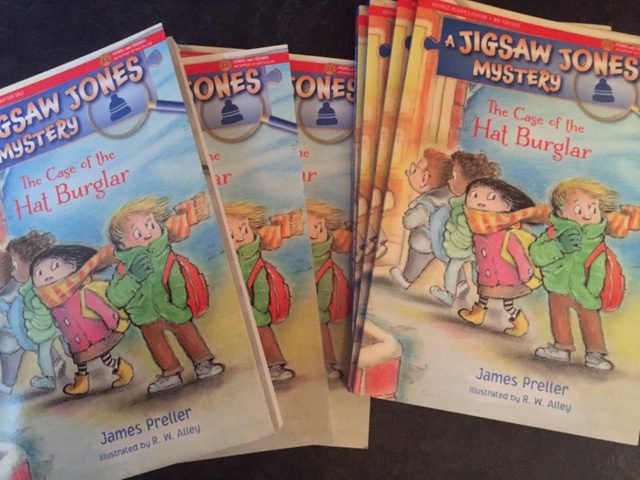–

–
We feel it at the doorway, those occasions of coming and going. We arrive now and home has been transformed into something different — a less welcoming place. No one meets us in the hallway, front paws dancing. The house does not stir. She got old in a day, an instant, and was gone. Leaving the house also conveys her absence, our loss. No one anxiously watching as we assemble ourselves, coat and shoes and keys, hoping we’ll reach for the leash. Sorry, Daisy, we’d say, you stay and guard the house. Other times, it was let’s go for a ride –- and Daisy bouncing out the door for a walk amidst the trees, off leash. Our peaceful communion. These days we move in and out of the house like ghosts. Pale shadows, we come and go and it almost doesn’t matter anymore. We miss her so.

I am reminded of a letter that Daisy wrote, and I posted, years ago at a different time in America . . .
Dear President-Elect Obama:
It is with some difficulty that I type this, as I am a dog and not really a Mac person.

I’ll try to be brief. My name is Daisy. You probably receive thousands of letters each week from dignitaries, heads of state, and ordinary citizens. But, really, how many come from dogs?
Since you are likely curious, I’ll explain. I became a reader when I was a pup, confined to a small newspaper-covered quadrant of the kitchen. It was during this tense house-breaking period that I first sought solace in the written language of humans. Soon enough, I began to follow the Presidential election with great interest.
Hold on, I’ve got an itch behind my ear. Scritch-scratch, scratch scratch scratch SCRATCH, scratch scratch scratch, scratchy-scratch!
Ahhhh. Much better. I was recently chewing on a fuzzy, delicious tennis ball when I overheard a dinner conversation. I learned that your family will be getting a new dog when you enter the White House. I immediately went to the recycle bin to fetch the newspaper. I found the full text of your November 4 victory speech, and I quote:
If there is anyone out there who still doubts that America is a place where all things are possible; who still wonders if the dream of our founders is alive in our time; who still questions the power of our democracy, tonight is your answer.
Blah, blah, blah. I’m skimming, skimming . . . ah, here it is (!):
Sasha and Malia, I love you both more than you can imagine, and you have earned the new puppy that’s coming with us to the White House.
Clearly, this is the first true test of your administration. The eyes of the canine world are upon you. Don’t blow it on a lunatic Irish Setter or Pomeranian. Clearly, an Alaskan Husky is out (unless you want to be post-ironic, which I don’t think is the best way to kick off an administration — just my opinion).
You can imagine my thrill when I learned you are considering adopting a goldendoodle. As I am myself a goldendoodle — and proud of it! — I felt compelled to type this message. (And if somebody would ever trim my nails, it would be a lot easier!)
Speaking for my brothers and sisters everywhere, I urge you to go with the goldendoodle. We don’t shed. We are hypoallergenic. We are gentle with children. And we certainly don’t yap-yap-yap like some breeds (I blame Bush’s skittish Scottish terriers, Barney and the odiously named “Miss Beazley,” for much of went wrong the past eight years).
And, though I am loathe to sound egotistical, we are undeniably cute.

Photo: Diamonddoodles.com.
But, yes, your every decision will be scrutinized. So in the interest of full disclosure, I’ll admit this up front: We might not look so great when soaking wet. But then, who does? Joe Biden? I think not.

True, we have our critics. Some sneer and call us “designer dogs.” Some say we lack backbone. To which I respond: It’s true. In times of danger, I’ll flop on my back and submit. We’re like Gandhi in that respect. Besides, You don’t need a junk yard dog. You already have that scary Rahm Emanuel . .


. . . .and those creepy Secret Service guys.
Here comes the most sensitive issue of all. We are not quote/unquote “a recognized breed” by the (snooty, unpatriotic) American Kennel Club. Not a recognized breed?! Pause a moment and let that sink in. Does it resonate, just a little bit? Not a recognized breed. Yes, sadly, it’s true, even in today’s America, when we had thought we had come so far. But it represents a bold new opportunity for your presidency. For isn’t this in keeping with your call for change, for new ideas? Let’s turn away from the old way of doing things! I quote again from your acceptance speech:
It’s been a long time coming, but tonight, because of what we did on this day, in this election, at this defining moment, change has come to America.
Make a statement, President-elect Obama, Sir. You are the bright, shining symbol for the disenfranchised everywhere. Open your arms wide! Embrace us! Go with the goldendoodle. Recognize us as a breed. Let us lay down by your feet.
I’m begging you, as only a dog can beg: Throw us a bone here, will you?
Speaking for doodles everywhere, we will love your daughters with all our doggy hearts.

Yes! We! Can!
Now, if you’ll excuse me, I have a tail to chase.
Faithfully yours,
Daisy



















